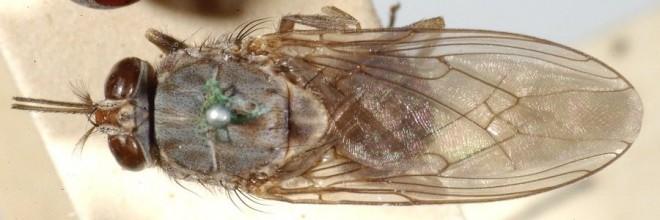
Researchers from the University of Glasgow, Scotland and the Institut Pasteur in France have conducted a study which reveals that the skin plays a huge role in sheltering and transmitting the parasite that causes African trypanosomiasis, more commonly known as sleeping sickness. The disease can be fatal if not treated on time.
The diagnosis, treatment and eradication of this disease is likely to be majorly affected by the study these researchers conducted.
The parasitic disease is spread through the bite of the infected tsetse fly, which kills thousands in Sub-Saharan Africa, every year. A diagnosis of the disease is made if traces of the parasite are found to be present in the blood of the patient.
This study revealed that large quantities of a single-celled parasite called trypanosomes, which cause this sickness, can be present in human skin and transmitted to the vector tsetse fly, despite the human host not showing any symptoms of the disease, nor there being any pathological evidence of them being infected.
Researchers detected the presence of these parasites by conducting biopsies of the skin of individuals who did not show any signs of the disease.
The findings revealed that these skin-dwelling parasites are present in the skin in enough quantities that they can be easily ingested and transmitted by the fly, leading to the further spread of the disease.
"Our results have important implications with regard to the eradication of sleeping sickness," said Annette MacLeod from University of Glasgow.
"Firstly, our findings indicate that current diagnostic methods, which rely on observing parasites in the blood, should be re-evaluated and should include examining the skin for parasites," she added.
She also explained that in order to better treat this disease remedies need to be developed that aim at targeting the sources that spread the infection in the reservoirs under the skin, as well as outside.
The findings of this study also point towards the need for a re-evaluation of disease control policies.
According to the present World Health Organisation (WHO) policy, people not presenting with symptoms of sleeping sickness should not be treated until traces of the parasite are found in their blood. This is alrgely due to the fact that treatment goes on for a long duration and also has high toxicity, MacLeod further explained.
"This policy should be reconsidered in light of our compelling evidence that these patients represent a carrier population," she stated in a report by the University of Glasgow.
"This is because the lack of treatment may help nurture disease outbreaks and explain previously thwarted efforts to eliminate this major pathogen," she stated.
This study was published in the journal Life.





!['Lip lock, pressure, pyaar': Vidya Balan- Pratik Gandhi shine in non-judgmental infidelity romcom Do Aur Do Pyaar [ Review]](https://data1.ibtimes.co.in/en/full/797104/lip-lock-pressure-pyaar-vidya-balan-pratik-gandhi-shine-non-judgmental-infidelity-romcom.jpg?w=220&h=138)







